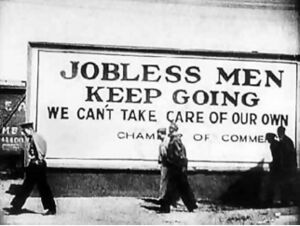- Portals
- The Current Year
- ED in the News
- Admins
- Help ED Rebuild
- Archive
- ED Bookmarklet
- Donate Bitcoin
Contact an admin on Discord or EDF if you want an account. Also fuck bots.
The Dot.Com Bubble






The bursting of the “dot.com bubble” was a meme of the early 21st century. History shows repeatedly that when new technology meets up with enormous sums of money, something useful is likely to be the result. For example, when industry first witnessed the transformative power of atomic energy in 1945, unprecedented billions of dollars were invested into other exciting ventures such as nuclear power plants and inter-continental ballistic missiles, generating industries that have kept the US economy strong. This was no less true in the case of the “dot.com” industry of the 1990s, which bravely pioneered such technologies as pop-up advertising and “cookies” for tracking individual consumer preferences. Yet, this industry was punished quite severely merely for trying to help us manage the huge amounts of useful information to which we now have access!
The Web is born
Until the mid-1990s, the Internet’s tubes were of low quality, slow, quite narrow and often leaky. The only activity that ever took place was the Aspergerian exchange of computer code in brief e-mails between a few isolated nerds, or postings on “bulletin boards” via “Telnet” and “Gopher” on topics like “How to make LSD” or “The necessity of forming local militias.” Computers used "modems," and a paragraph of plain text took about 5 minutes to load.
All this changed very suddenly in early 1995 when Netscape released its version 1.0, and “the Web” officially was born. Suddenly, it was possible for an ordinary person to visit one of hundreds of “World Wide Web” sites.
Investors were quick to see potentially unlimited “Return on Investment” from financing the notions of Silicon Valley’s many 18-year-old geniuses, as they drew up one-page business plans on a remarkable range of world-changing visions – paper will soon be obsolete, flashy online “communities” will keep everyone entertained, thousands of online pet-supply stores and high-fashion boutiques will provide retail therapy, online groceries ordered and delivered within the hour, and many more exciting ways to simplify and enhance American lives. These were called the “dot.coms.” It was seldom clear exactly how, starting from nothing, these visionary businesses were ever going to become profitable, and thus reward the far-seeing capitalist investors, but it was quite obvious that within just a few years, or even months, everyone would be insanely rich.
Good times!



But why wait until later? Let’s have some fun right now! Even if it was “irrational exuberance,” at least it was exuberant, which was more than could be said about the aluminum foil industry or the pencil industry. And so, thousands of new companies run by brilliant young people, and backed by financial giants, sprouted up around the world, from San Francisco to St. Petersburg, each with beautifully furnished corporate offices in the best locations, lovely indoor squash courts, catered daily luncheons, limousine pick-up for office workers, free laundry and dry-cleaning, all the Mountain Dew you could drink, mandatory foosball tournaments, and much more. The stock exchanges were swollen with the names of new techno-corporations. At last, having Asperger’s syndrome was no longer stigmatized, and instead was a pathway to great wealth, as thousands of former shut-ins grew accustomed to helicopter commutes from their new suburban mega-homes. It was a welcome development in the often brutal and cut-throat business world, as these hard-working young people, pale from their tireless, all-nighters eating Doritos before flickering computer screens, cashed in their piles of stock options and had a chance to live the good life.
Dark forces
Meanwhile, certain elements of the “old business paradigm" grew envious of this success, and began to plot its downfall.
They began to spread alarming stories in the “old media” that this Internets business model, of high investment into unproven, new ideas, was nothing but a hallucination, a bubble, a house of cards! They paid for alarming TV “investigations” into the “Internet craze,” watched by millions. Ordinary stock market investors were fooled by this, and suddenly, in the Spring of 2000, like herds of stupid, stampeding cattle, unable to see their own bright futures, they began to sell everything!
And so, the stock market crashed, the “bubble” dream of improving civilization had burst. The big investors lost billions for their remaining shareholders, and cut the funding to the now-struggling dot.com companies. Within days, once-wealthy twenty-somethings were trying desperately to sell their BMWs, get out of gigantic mortgages, find some new way to support the Chardonnay habit, but all to no avail.
Darkness before the dawn
Following all this, along with the Y2K threat, the entire world descended into a dark age of impoverished, "bricks and mortar" bleakness, as businesses were forced to think only of “practical” and “proven” ways of making money, and had to “show” a “realistic” strategy for making a profit.
On September 11, 2001, the dollar signs returned to their sparkling eyes, and light shined once again on the great American Dream. Because the largest historical defecit and an incoming Depression are the American Dream.
See also
- Eternal September
- Unrealistic expectations
- Fucked Company
- Fucked Company Hall of Fame (Spring 2001 selection)
